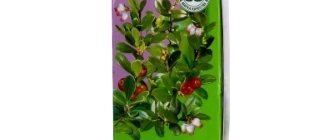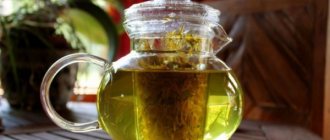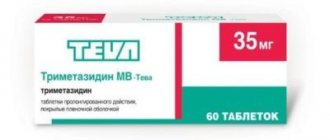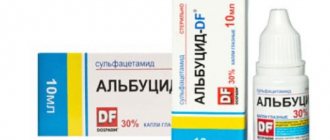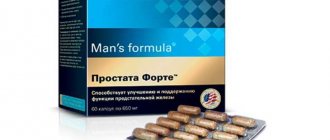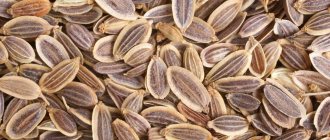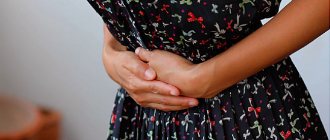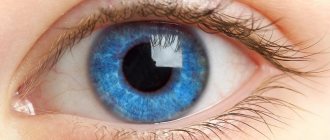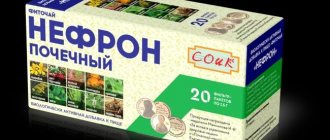Stock
active ingredients:
1 ml mixed with rare phytoextract (1:5.8) – 1 ml, from mixed medicinal herb: cybula
(Allium Cera L.)
, root pyria (
Rhizoma Agropyri
), birch leaves (
Betulae fo lium
), now fenugreek (
Foenіgraeci semen
), parsley root (
Radix Petroselini
), goldenrod herb (
Solidaginis herba
), horsetail herb (
Equiseti herba
), bird's-eye herb (
Polygoni avicularis herba
), lovage root (
Radix Levistici
) (extractant 45% ethanol);
additional speeches:
ethyl parahydroxybenzoate (E 214).
There are 27 droplets in 1 ml of the drug.
Uronephron® (gel)
Pharmacological properties
Pharmacodynamics.
Uronephron is a combination drug of plant origin. It has anti-inflammatory, diuretic, antispasmodic and antimicrobial effects. The diuretic effect is due to flavone derivatives, inositol, saponins and silicates. The latter also enhance the excretion of uric acid due to urate deposits in the kidneys. The drug prevents the crystallization of mineral components in the urinary tract, has a beneficial effect on maintaining the balance between colloids and crystalloids in urine. Saponins reduce surface tension, form protective colloids and emulsify pathogenic components of urine, preventing the formation of sand and kidney stones. Helps wash away sand and small stones, prevents the increase of stones or the appearance of new ones.
Onion peel contains essential oil (up to 0.15%), vitamin C, riboflavin, thiamine, carotenoids, phytic, citric and malic acids, sugars (glucose, fructose, sucrose), flavonoids, potassium compounds, iron, manganese, zinc and cobalt Has an anti-inflammatory effect.
Creeping wheatgrass. The rhizome contains polysaccharides, sugars, alcohols, glycosides, vitamins, essential and fatty oils, and organic acids. The main effect is diuretic, regulating metabolism.
Birch leaves contain essential oils, saponins, tannins, resins, ascorbic and nicotinic acids. The main effect is diuretic, choleretic, antispasmodic, anti-inflammatory.
Fenugreek seeds contain trigonelin, nicotinic acid, rutin, steroidal saponins and phytosterols, flavonoids, and essential oils. The main effect is anti-inflammatory, restorative, wound healing.
Parsley root contains aponil, myristicin, and flavonoids. The main effect is diuretic, anti-inflammatory, litholytic.
Goldenrod herb contains flavonoids: kaempferol, quercetin and their glycosides - astragalin, rutin. The main effect is diuretic, antibacterial, anti-inflammatory.
Horsetail contains flavonoids: derivatives of apigenin, luteolin, kaempferol, quercetin, and also contains phenolcarboxylic acids, tannins, saponins. The main effect is diuretic, anti-inflammatory, litholytic, detoxification.
Polygonum herb contains flavonoids, phenolic acids, carotene, ascorbic acid, and tannins. The main effect is diuretic, hemostatic.
Lovage. The aboveground mass and roots of lovage contain essential oil (in fresh roots - 0.1-0.2%, in dry roots - 0.6-1%), sugars, organic acids, minerals, resins, starch. The composition of the essential oil includes terpineol, cineole, acetic, isovaleric and benzoic acids. The main effect is diuretic, anti-inflammatory.
Pharmacokinetics.
Not studied.
Pharmacological authorities
Pharmacodynamics.
Uronephron® is a combination drug of rosemary. Perform anti-inflammatory, sedative, antispasmodic and antimicrobial actions. The secretory action is related to flavones, inositol, saponins and silicates. The rest will also facilitate the removal of sechoic acid in case of urine discharge. The medicinal substance promotes the crystallization of mineral components in the coloids, gently pours into the preservation of the balance between the coloids and the crystalloids of the sieve. Saponins change the surface tension, soothe dry solids and emulsify pathogenic components of the cuttings, and overcome the presence of sand and stones in pits. It eliminates the presence of other stones, avoids more stones or the appearance of new ones.
Lushpinnya tsibula ripchastya
remove essential oil (up to 0.15%), vitamin C, riboflavin, thiamine, carotenoids, phytic, citric and malic acids, zucchini (glucose, fructose, sucrose), flavonoids, semi-potassium, saliva, manganese , zinc and cobalt. Repair anti-fuel work.
Pyrius
. The rhizome contains polysaccharides, turmeric, alcohols, glycosides, vitamins, essential and fatty oils, organic acids. The main action is diuretic, regulating the metabolism of speech.
Birch leaves
remove essential oils, saponins, tannins, resins, ascorbic and nicotinic acids. The main action is diuretic, hormonal, antispasmodic, antispasmodic.
Fenugreek today
mix trigonelin, nicotinic acid, rutin, steroidal saponins and phytosterols, flavonoids, essential oils. The main action is anti-inflammatory, anti-inflammatory, early anti-inflammatory.
Parsley root
aponil, myristicin, flavonoids. The main action is diuretic, antispasmodic, litholytic.
Goldenrod grass
combine flavonoids: kaempferol, quercetin and their glycosides – astragalin, rutin. The main action is diuretic, antibacterial, anti-inflammatory.
Horsetail
add flavonoids: similar apigenin, luteolin, kaempferol, quercetin, as well as phenol carbonic acids, tannic acids, saponins. The main action is diuretic, anti-inflammatory, litholytic, detoxification.
Bird's eye herb
contain flavonoids, phenolic acids, carotene, ascorbic acid, tannins. The main action is diuretic, blood-spinal.
Lovage.
Overground oil and lovage roots are mixed with essential oil (for fresh roots – 0.1–0.2%, for dry roots – 0.6–1%), zucchini, organic acids, minerals, resins, starch. The essential oil content includes terpineol, cineole, ottovo, isovaleric and benzoic acid. The main action is sechoginn, anti-inflammatory.
The components included in the herbal medicinal product Uronefron® exhibit complex activity, which is manifested in anti-inflammatory action and relieved spasm of the thyroid glands, sechoginal, vasodilatory effects, as well as indicate the effectiveness of the antimicrobial drug.
Pharmacokinetics.
I didn’t screw around.
Uronephron® (tablets)
Pharmacological properties
Pharmacodynamics.
Uronephron® is a combination drug of plant origin. It has anti-inflammatory, diuretic, antispasmodic and antimicrobial effects. The diuretic effect is due to flavone derivatives, inositol, saponins and silicates. The latter also enhance the excretion of uric acid due to urate deposits in the kidneys. The drug prevents the crystallization of mineral components in the urinary tract, has a beneficial effect on maintaining the balance between colloids and crystalloids in urine. Saponins reduce surface tension, form protective colloids and emulsify pathogenic components of urine, preventing the formation of sand and kidney stones. Helps wash away sand and small stones, prevents the increase of stones and the appearance of new ones. The effect of Uronefron® on the tubular and glomerular system of the kidneys leads to a decrease in protein secretion during proteinuria.
Onion peel contains essential oil (up to 0.15%), vitamin C, riboflavin, thiamine, carotenoids, phytic, citric and malic acids, sugars (glucose, fructose, sucrose), flavonoids, potassium compounds, iron, manganese, zinc and cobalt Has an anti-inflammatory effect.
Creeping wheatgrass. The rhizome contains polysaccharides, sugars, alcohols, glycosides, vitamins, essential and fatty oils, and organic acids. The main effect is diuretic, regulating metabolism.
Birch leaves contain essential oils, saponins, tannins, resins, ascorbic and nicotinic acids. The main effect is diuretic, choleretic, antispasmodic, anti-inflammatory.
Fenugreek seeds contain trigonelin, nicotinic acid, rutin, steroidal saponins and phytosterols, flavonoids, and essential oils. The main effect is anti-inflammatory, restorative, wound healing.
Parsley root contains aponil, myristicin, and flavonoids. The main effect is diuretic, anti-inflammatory, litholytic.
Goldenrod herb contains flavonoids: kaempferol, quercetin and their glycosides - astragalin, rutin. The main effect is diuretic, antibacterial, anti-inflammatory.
Horsetail contains flavonoids: derivatives of apigenin, luteolin, kaempferol, quercetin, and also contains phenolcarboxylic acids, tannins, saponins. The main effect is diuretic, anti-inflammatory, litholytic, detoxification.
Polygonum herb contains flavonoids, phenolic acids, carotene, ascorbic acid, and tannins. The main effect is diuretic, hemostatic.
Lovage. The above-ground mass and roots of lovage contain essential oil (in fresh roots - 0.1-0.2%, in dry roots - 0.6-1.0%), sugars, organic acids, minerals, resins, starch. The composition of the essential oil includes terpineol, cineole, acetic, isovaleric and benzoic acids. The main effect is diuretic, anti-inflammatory.
The components that make up the herbal medicine Uronefron® exhibit complex activity, which is manifested in the anti-inflammatory effect and elimination of spasms of the urinary tract, diuretic, vasodilatory effects, and also determine the effectiveness of the antimicrobial effect of the drug.
Pharmacokinetics.
Not studied.
Contraindicated
- Sensitivity to any component of the medicinal plant has been extended to the genus Asteraceae (Compositae)
(goldenrod),
Apiaceae (Umbelliferae)
, and anethole (lovage root), birch sawdust (birch leaves). - Conditions in which a decrease in living conditions is recommended (for example, neurological deficiency, heart failure).
- Become what is accompanied by the movement of the throat of blood.
- Obstruction of the sechovidal pathways.
- Acute nephritis, nephrosis, phosphate lithiasis.
Interactions with other medicinal drugs and other types of interactions
In connection with the sechogenic action of the drug, it is possible to quickly eliminate other immediately stagnant drugs.
The drug can enhance the action of hypoglycemic drugs, non-steroidal anti-inflammatory drugs, lithium salts, monoamine oxidase inhibitors, anticoagulants; prolong treatment with pentabarbital, paracetamol, aminopyrine.
The drug can change the absorption of medicinal substances in the small intestine, including beta-carotene, alpha-tocopherol, and cholesterol.
Uronephron tab. 188 mg No. 60
Composition Release form Pharmacological action Pharmacokinetics Indications for use Contraindications Side effects Drug interactions Application and dosage Overdose Sales conditions Storage conditions Use during pregnancy and breastfeeding Effect on the ability to drive vehicles and operate machinery Special instructions Reviews and recommendations from doctors and patients For what diseases is it used?
Compound
One tablet contains 188 mg of dry extract of the following plants: onion husks, silver birch leaves, wheatgrass creeping rhizome, curly parsley, gunbi hay seeds, goldenrod grass, horsetail stems, knotweed grass, lovage roots.
Also included in the composition: lactosium monohydricum, magnesium stearate, microcrystalline cellulose, anhydrous colloidal silicon dioxide.
Release form
The medicine is produced in the form of dark green tablets, packaged in packs of 60 pieces.
pharmachologic effect
Uronephron is a combination drug with diuretic, antibacterial, antispasmodic and anti-inflammatory effects. The composition of the drug Uronephron includes components of plant origin, the biologically active substances of which determine the effect of the drug.
Uronephron increases diuresis and also increases the excretion of uric acid in patients with gout in the kidneys, as a result of which sand and small stones are washed away, and also reduces the size of large stones. In addition, Uronephron prevents the crystallization of minerals and the formation of stones and sand in the urinary tract and regulates the balance of colloids and crystalloids in the urine.
The drug normalizes metabolic processes, reduces the intensity of the inflammatory process of the urinary tract, and has a choleretic and tonic effect.
Pharmacokinetics
The kinetic parameters of Uronephron have not been studied, since the drug is a multicomponent herbal product, the kinetics of which are extremely difficult to trace.
Indications for use
The instructions for use state that this drug is used in the complex treatment of infectious and inflammatory diseases of the urinary system, accompanied by the formation of stones. This drug is prescribed for the prevention of urolithiasis.
Contraindications
The drug should not be used if you are allergic to one of its components, if you have phosphate stones, acute interstitial nephritis, acute glomerulonephritis, renal or heart failure and nephrosis.
In addition, the drug in question should not be used by people under 15 years of age.
Side effects
When taking the drug Uronephron, patients may experience isolated cases of photosensitivity, changes in taste and nausea. Allergic symptoms are also possible.
Drug interactions
This drug can significantly shorten the half-life of drugs excreted by the kidneys.
The combined use of this drug with hypoglycemic drugs, anticoagulants, monoamine oxidase inhibitors and non-narcotic analgesics enhances their effect.
The combination of Uronephron with Pentabarbital and Paracetamol allows you to prolong the therapeutic effect of the latter.
The drug in question reduces the absorption of cholesterol, beta-carotene and alpha-tocopherol in the small intestine.
Application and dosage
The medicine should be taken after meals. The standard dose for an adult is 1 tablet 3-4 times a day. The duration of treatment is determined individually and depends on the severity of the disease. The optimal course of treatment is two to six weeks. If necessary, taking the tablets can be repeated.
Overdose
Poisoning with this drug may be accompanied by increased side effects. In this case, no specific treatment is carried out: medications are prescribed according to the detected symptoms.
Terms of sale
Over the counter.
Storage conditions
At room temperature, in a dry place with limited access for children. The medication is valid for 2 years.
Use during pregnancy and breastfeeding
The drug should not be taken during these periods.
Impact on the ability to drive vehicles and operate machinery
Does not affect.
special instructions
The drug should not be used for edema caused by heart or kidney failure.
If you experience pain, difficulty urinating, blood in your urine, worsening symptoms, or fever, consult your doctor immediately.
Reviews and recommendations from doctors and patients
The overwhelming majority of reviews about the drug Uronefron are positive.
Experts characterize this drug as an effective natural remedy for the treatment of diseases of the genitourinary system.
Patients report that this drug can have an analgesic effect and also relieve inflammation.
People who have completed the full course of treatment indicate the undoubted effectiveness of this remedy. It is also noted that the form of the drug Uronephron is very convenient to use.
SELF-MEDICATION CAN BE DANGEROUS TO YOUR HEALTH. ALWAYS CONSULT WITH YOUR DOCTOR.
For what diseases is it used?
- Pyelonephritis
- urethritis
- cystitis
- prostatitis
Features of good stagnation
When prescribed as a medicinal drug, it is necessary to carry out glycemic control in patients with cellular diabetes due to the possible hypoglycemic effect of fenugreek.
In case of severe pain, difficulty in bleeding, the appearance of blood in the section, intensified symptoms, or in case of elevated body temperature, you must urgently contact a doctor.
During the period of treatment, it is recommended to take a large amount of medicine.
Do not use the drug if swelling occurs, caused by heart or nutrient deficiency.
The drug contains ethyl parahydroxybenzoate (E 214), which can cause allergic reactions (possibly enhanced).
It is recommended to use a low amount of ethanol – less than 100 mg/dose.
Best before date
36 months
Vitamins with similar effects
- Aviton - Lysin-Active (Capsule)
- Maxiflorum For skin. Strengthened formula (Oral tablets)
- Maxiflorum Cardio with hawthorn (Oral tablets)
- Marcalact (Oral powder)
- Blue blackberry, leaves-C (Raw materials for the production of dietary supplements)
The description of vitamin Uronephrine is intended for informational purposes only. Before starting to use any drug, it is recommended to consult a doctor and read the instructions for use. For more complete information, please refer to the manufacturer's instructions. Do not self-medicate; EUROLAB is not responsible for the consequences caused by the use of information posted on the portal. Any information on the project does not replace consultation with a specialist and cannot be a guarantee of the positive effect of the drug you use. The opinions of EUROLAB portal users may not coincide with the opinions of the site Administration.
Are you interested in vitamin Uronephrine? Do you want to know more detailed information or do you need a doctor's examination? Or do you need an inspection? You can make an appointment with a doctor - the Euro lab is always at your service! The best doctors will examine you, advise you, provide the necessary assistance and make a diagnosis. You can also call a doctor at home . Euro lab clinic is open for you around the clock.
Attention! The information presented in the vitamins and dietary supplements section is intended for informational purposes and should not be a basis for self-medication. Some of the drugs have a number of contraindications. Patients need to consult a specialist!
If you are interested in any other vitamins, vitamin-mineral complexes or dietary supplements, their descriptions and instructions for use, their analogues, information about the composition and form of release, indications for use and side effects, methods of use, dosages and contraindications, notes about the prescription of the drug for children, newborns and pregnant women, price and consumer reviews, or you have any other questions and suggestions - write to us, we will definitely try to help you.
Side effects
On the side of the immune system:
allergic reactions, including vysypi, kropivyanka, itching, allergic rhinitis, skin swelling.
On the side of the nervous system:
confused.
On the side of the scolio-intestinal tract:
boredom, vomiting, diarrhea, bloating.
From the side of the skin and under the skin:
increased sensitivity to ultraviolet radiation (photosensitivity).
On the side of the thyroid system:
Nirkova colic.
